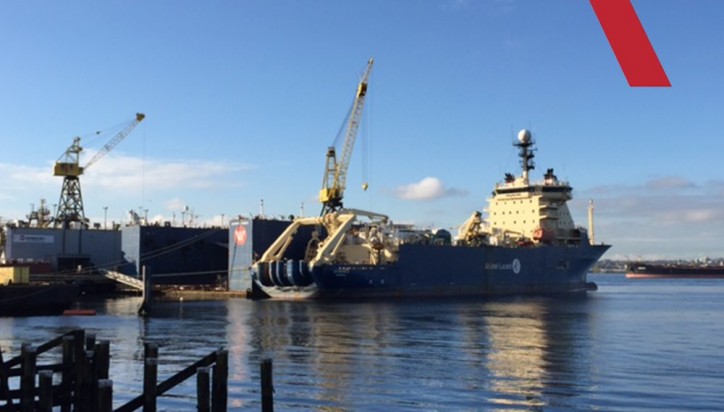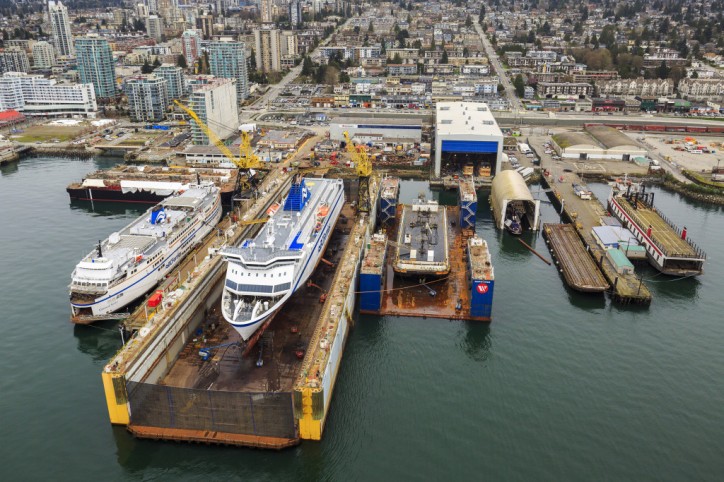Following five extensive weeks of repair and installation activities, Seaspan’s Vancouver Drydock (VDC) announced Wednesday that its refit activities on Louis Dreyfus’ Ile de Batz Special Purpose/Cable Layer vessel were completed on-schedule.
Arriving on April 21 and departing VDC on May 25, 2017, the Paris, France-based vessel underwent a wide scope of work that included the assembly of a new plow (special insitu welding/machining), overall support for mobilizing the ship, as well as the primary focus of the refit program, the installation of a Ballast Water Treatment (BWT) system – the first of its kind at VDC.

“This innovative repair and maintenance project truly was an all-hands-on-deck job, and marks the start of a proud new chapter in Vancouver Drydock’s world-class service offerings,” said Paul Hebson – Vice President and General Manager, Vancouver Drydock.
“Over the course of the project we employed almost 60 workers, delivering quality services around the clock. I couldn’t be happier with the final product, work that clearly exemplifies our commitment to our Core Value of Care for both our Customer and the Environment. Given Seaspan Shipyard’s strategic location on the West Coast of North America, near the Canada-USA border, and with drydock berth space in both Vancouver and Victoria, we will continue to be well positioned for this type of activity for years to come.”

While the work itself was a new type of refit project for VDC, the technology used in the installation process was an even more exciting and innovative first for the yard. The Ballast Water Treatment system was installed with the assistance of state-of-the-art robotic pipe welding machines developed by Novarc Technologies, a North Vancouver-based company. Using advanced control techniques, these cutting-edge, collaborative robotic systems - which will be used across Seaspan’s shipyards in the Lower Mainland and Vancouver Island - allow pipe welding tasks to be done dramatically more effectively and efficiently.
New regulations have made it mandatory for all vessels sailing internationally to comply with Ballast Water Management (BWM) regulations. This means 60,000 vessels worldwide will have to be retrofitted with BWT systems before 2022. BWT systems aid ships by reducing the uptake or discharge of aquatic organisms that may be harmful in foreign ecosystems. BWM regulations were created as an Environmental Safety initiative, after strong scientific evidence confirmed that vessels sailing internationally have severe impacts in foreign marine ecosystems. New BWM regulations will likely result in an increased demand for BWT system installation among organizations offering ship repair and dry-docking services.
With its new BWT system installed, Ile de Batz is scheduled to sail from Vancouver on June 1.
Source: Seaspan